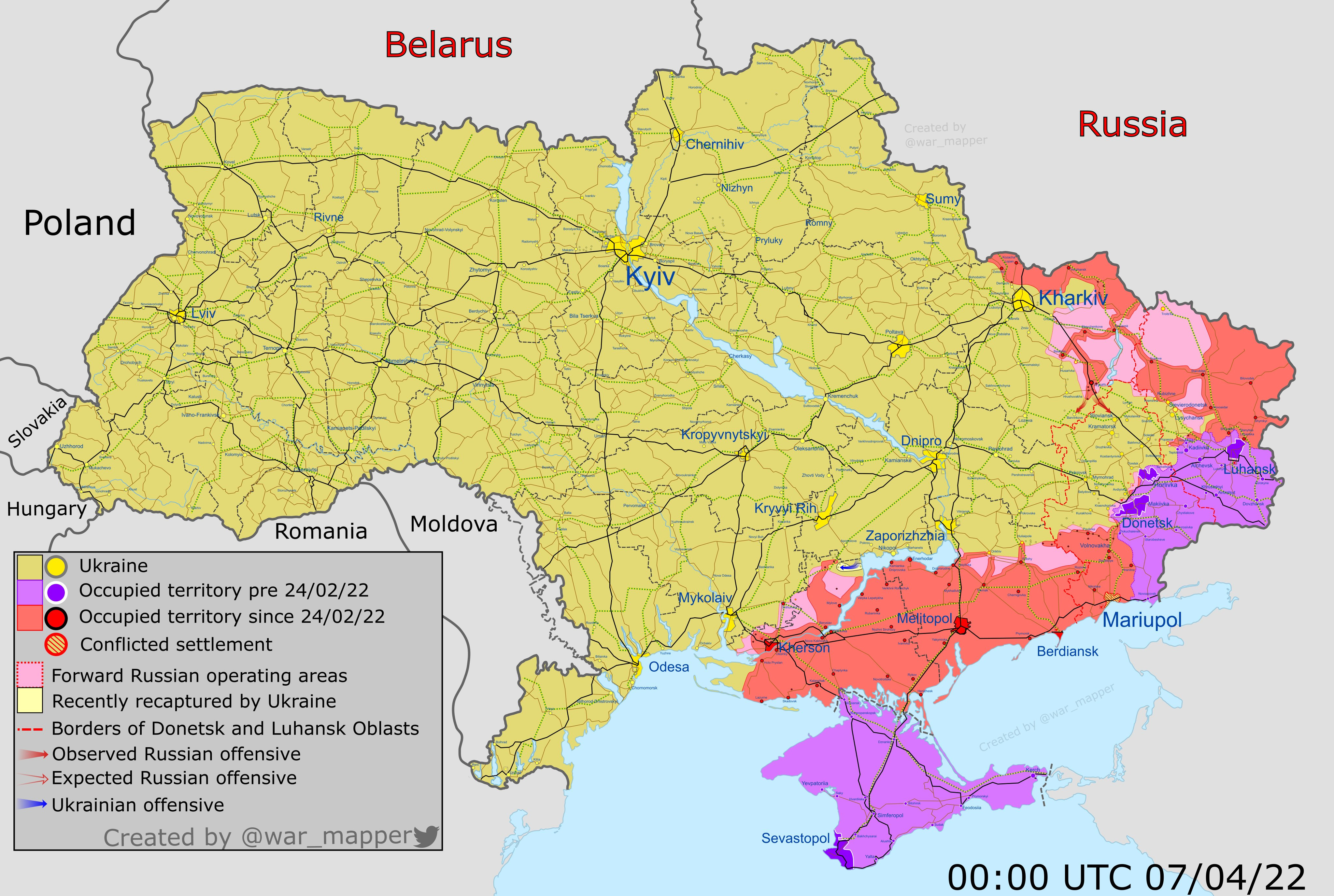Day 13, Phase 2

I’ll concentrate on the military and military-political situation today. I see Stefan has written a very, very long brief. I congratulate him for spelling public-facing proper nouns correctly :-)
Yuriy is back from the front lines w/ this report and lots of maps:
Fred & Co continue plotting (at US taxpayer expense):
Rob Picheta, the digital producer at CNN, appears confused about place name spellings.
Someone, please, tell Rob that Stefan and Fred, with the exception of Zaporizhzhia, transliterate place names correctly. CNN, on the other hand, maybe thanks to Rob, does not, e.g. Izyum, Slovyansk, which should be rendered Izium, Sloviansk, just like #Kyiv (not #Kiev). The Kyiv-based Interfax-Ukraine news agency remains a standard bearer for correct English-language proper noun transliteration from Ukrainian. If Rob and CNN want to transliterate place names from Russian, they should explain why.
Arkady straightens Mark out in this analysis of the military-political situation.
Arkady asks an important question in the beginning of the chit chat:
Why didn’t Ze & Co, at least, warn, if not evacuate, residents of towns north of the capital and in Kyiv/Cherkasy regions after CIA Director Robert Burns warned Ukraine’s top brass in person on January 12, 2022 that the Russians would launch a full-blown invasion, including from Belarus?
On March 6, Mykhailo Podoliak, advisor to Andriy Yermak, head of Ukraine’s Office of the President, admitted this was a mistake, starting at 46:20, in this chit chat.
Latynina: So, you’re saying that you [Ze!Team] made a mistake.
Podoliak: Yes, to a certain extent. Yes.
Podoliak explains that Ze!Team made the same mistake as Fred in ISW’s loopy counterfactual fantasy (which we discussed on Day 5), namely assessing that:
Putin is and remains a rational actor who is not less well-grounded in reality than most world leaders. ...He will not intentionally take actions likely to risk the survival of the Russian state or his own rule, although... No “bounded rationality” is necessary to explain Putin’s decisions or actions.
Viktor Arestovych, who advises Podoliak, has a different explanation:
Arestovych says the decision not to warn Ukrainians in the path of an imminent Russian invasion was made in order to prevent people from panicking and fleeing en masse, clogging train stations, bridges, et cetera.
So, there you have it. Two not exactly mutually exclusive explanations.
(to be continued)




